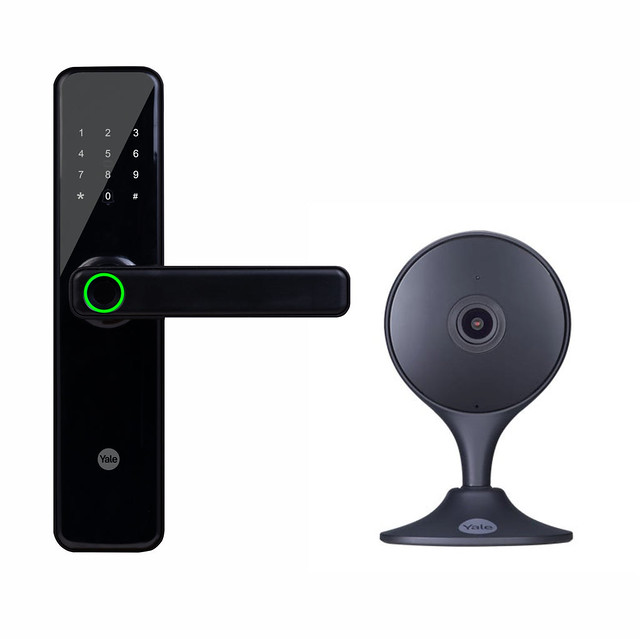
IP Cameras – The Future of Surveillance
Unlike analog cameras that require a direct connection to a monitor or DVR, IP cameras connect through the internet and can be accessed remotely. This versatility makes them a popular choice for business and home surveillance use.
Some brands have even added advanced analytics to their cameras. However, these cameras may be vulnerable to brute-force attacks.
High-Definition Video Capture
High-definition video capture ensures that you will always see a clear image. It also helps to capture a higher level of detail, which is important for many security applications. A camera that can’t deliver a quality image is useless. American Dynamics offers a full line of IP cameras that meet the highest standards for clarity and accuracy. From our Illustra Series featuring advanced functionality to our Capture Advance series designed for small and mid-sized properties, you can find the right solution for your needs.
Besides the camera, another important component of an IP security system is the recording system. You can choose to record the video directly on a PC or work with a Network Video Recorder (NVR). NVRs are an ideal solution because they manage the data and offer efficient storage of the digital video data.
The NVR can be located on the same premises as the camera or in a remote server. It can be accessed remotely using software that runs on a PC or mobile device. Some systems are compatible with multiple devices and platforms, while others only allow one to view the camera at a time.
Some NVRs can be used for surveillance and can be purchased with up to 32 TB of hard disk space. Other NVRs come with eSATA HDD and DVD-RW drive options for even more wireless ip camera company storage capacity. Lastly, some NVRs have MicroSD card storage capabilities with Automatic Network Replenishment to mitigate the impact of outages.
Remote Monitoring
IP cameras are the future of surveillance. Providing businesses and homeowners with a flexible and efficient security solution, they offer high-quality resolution, remote monitoring capabilities, scalability, and advanced analytics. They are able to meet the needs of any business or home, making them an ideal investment for any security system.
An IP camera can be accessed from anywhere that has an internet connection, so it is easy to monitor your property at any time. The footage can also be stored remotely, and you can choose to use cloud storage or network-attached storage (NAS). Some models even allow you to live stream your camera, giving you a great way to stay in touch with your loved ones no matter where you are in the world.
Many models include a built-in micro SD card slot to store your footage locally, so you can access it whenever you need it. You can also connect your camera to a wired network for WiFi Camera the best possible performance, as Ethernet can provide you with the highest data transmission speeds. Wi-Fi is a convenient option as well, and you can connect your camera to a wireless modem or router.
Hanwha Vision (Techwin) offers a wide range of low-cost megapixel cameras that can be used indoors or outdoors. Their dome and box IP cameras come with a variety of lenses, enclosures, and features, such as remote focus and wide dynamic range.
No Need for Wires
While many major US brands (such as Bosch, Pelco, Honeywell, and Sony) once made excellent quality analog equipment, most now do little more than re-brand or modify products from “The Big Two” Chinese manufacturers that make almost 90% of all IP cameras on the market. These companies include Hikvision and Dahua.
The main reason is that these companies missed the transition from analog to digital. It was a complicated process that required new software, retraining electrical engineers as computer programmers, and establishing a new distribution network among installers who were generally not comfortable with the technology. This is a huge undertaking, especially for a major brand that already had billion-dollar buying networks and a massive staff to handle.
Another factor was that these brands’ executives did not believe that the surveillance industry would fully transition to IP because of high costs and the fact that most users are not tech savvy enough to manage it. This belief was misplaced. By the time that Geovision was charging their licensing fee for IP and that standardization was created through PSIA and ONVIF, it was too late to jump in with a profitable product.
LS VISION offers a variety of IP cameras that are designed for security and surveillance applications. Our IP camera range includes dome and bullet cameras with various features, including built-in IR illumination, remote zoom and focus lenses, and PoE. Most of our cameras are NDAA compliant, meaning they comply with the 2019 National Defense Authorization Act and can be used on federal projects. For more information, check out our NDAA Compliance FAQ.
Versatility
When it comes to the security industry, there are a lot of different options available. Many companies offer a wide variety of surveillance cameras, recorders, video management software, network switches and computer display systems. However, not all of them are created equal. It is important to choose the right equipment for your specific needs. LS VISION’s line of high-definition IP cameras provides the versatility you need to monitor your property.
Unlike the transition to HD television in the ’90s, the big US brands did not make a move into digital IP cameras when it first became a viable option. There were several reasons for this. One reason was the price. The cost of a single HD analog camera was expensive, and buying 8-30 of them for a sizable system would have been extremely costly.
Another reason was the complexity of the technology. When Geovision was rising to take a large share of the market in the early 2000s, they realized that other manufacturers would soon start producing digital IP cameras, and they were going to have to do something about it. So they decided to charge a yearly fee for non-Geovision devices that anyone tried to connect to their network.


